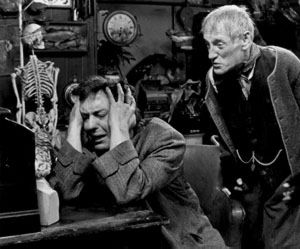Well folks we can all breathe a sign of relief. Science has spoken, that bastion of truth, honesty, factuality and knowledge has given us its decision. Now we can all go out can pontificate that university studies have shown, scientific evidence suggests Freud was right.
The September 2009 edition of the ‘Australian Psychologist’ journal is a theme edition on Childhood Maltreatment. The lead article by Carr and Francis(2009) reports their research and provides a literature review of the science in this area. They state that there is a “..large body of literature showing an association between childhood maltreatment and PDs. (Personality disorders)” (P151). This has been shown to be the case in both retrospective and longitudinal studies.

How you are treated in childhood effects your subsequent level of psychological maladjustment or lack of it. Science has spoken -- YaaaaaY!!. Adverse child hood experiences can result in emotional problems like personality disorders, anxiety, depression and so forth.
Not uncommonly in the area of childhood maltreatment one finds people distinguish between physical abuse, sexual abuse and emotional abuse. This research found no significant differences between them. There is an assumption by some that physical and sexual abuse are more psychologically damaging than emotional abuse whereas the research suggests this is not the case. REDRESS WA may indeed make this assumption and give more compensation to those who suffered physical and sexual abuse whilst in state care compared to those who “only” suffered emotional abuse.
As counsellors hear clients say from time to time, “I wish she had hit me”. Emotional abuse is much less tangible than a physical hit and this can at times cause the child more angst and difficulties than if the abuse had been more clear with physical hits.

Thus they conclude, “These results also lend support to aetiological theories that link the development of PDs to childhood maltreatment”(P153). University studies now prove that Freud was right! Well maybe not all of his theories right but they support his primary assumption that our childhood experiences effect us psychologically throughout life. Maltreatment in childhood can lead to anxiety, depression in adulthood,
This of course lends support to the psychodynamic theories of psychopathology. Those who claim that personality disorders, anxiety and depression have nothing to do with early childhood experiences now have a large body of science to respond to.

Also in this theme issue was a paper on foster care and recovery from childhood maltreatment. It was stated that there is a large and growing body of evidence that children removed from abusive homes into foster care have a poor psychological outcome in the long term. Whilst it is acknowledged that a children can and do learn some good attachment skills in foster homes there is the very real possibility of negative outcomes as well.
However it was also stated that comparing outcomes from foster homes to outcomes of children who were removed to orphanages then the results are even worse. Children removed to orphanages tended to be psychologically worse off than those moved to foster homes. Again this could have implications for compensation paid through REDRESS WA.
I recall going to a seminar recently given by a well known psychiatrist who spoke on child sexual abuse. He stated that the science is emphatic. A child who discloses sexual abuse to parents (or others) and then is reported to the police that child will be psychologically worse off at the end of the process whether it ends up in court or not and no matter how well it is dealt with.
You can’t get much more of a dramatic collision between the needs of an individual child and the needs a of a society. For the child it is better if it is dealt with in house and not with the police but the society suffers. If the police are informed it is better for the society but the child is worse off.

Family attachments need to
be handled with great care
With Australia’s new mandatory reporting of child sexual abuse laws the needs of the society are being given more importance. What this will do psychologically to a generation of children we will have to wait and see. The money required to deal successfully (or at least to minimise as much damage as possible) with the children of such mandatory reporting is simply too large and will never eventuate, we will see what the long term outcome is.
It also provides further evidence of the power of human attachment. A child will attach to its primary parenting figure whether it is being abused or not. The need to attach clearly outweighs the child’s assessment of the parental treatment afforded it. An attachment allows a child to define who it is at its very core and its basic sense of self. Thus one needs to be very careful how the child is removed from such a parent such that the child is not worse off and more damaged.
Graffiti


0 comments:
Post a Comment